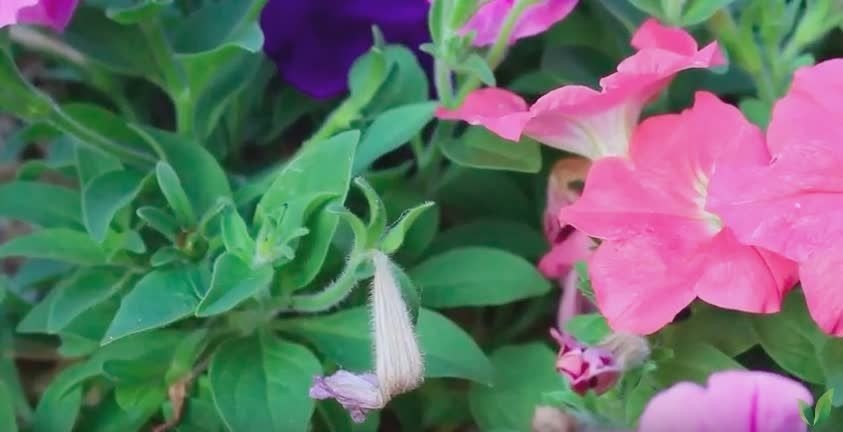
Why should we prune annual plants?
The reason why we tip prune; or as it is also known, dead-head plants is to prolong and maximise their flowering period - after all, the reason why we grow most annual plants is for the beautiful floral display that they put on for us.
The reason why tip pruning prolongs flowering is due to the reason why plants flower in the first place - plants flower and then set seed in order to reproduce. Once they set seed, that stage of their life-cycle is complete and there is then no further reason to produce more flowers - their energy is being put into seed production, not flower production. For a perennial plant, this means until the next season; for an annual plant, this means ever again - their job is now done and once the seeds have been dispersed, it will be up to the next generation to continue the species.
So, tip-pruning prevents energy from being directed in to seed setting, and therefore encourages the development of more flowers - in a way, the plant is being tricked into producing more flowers because it believes it needs to do this to produce seeds for reproduction.
How to prune annual plants
This process varies from one species to another, but generally, you must remove more than just the flower petals. It is important to remove all the remnants of the flower - most importantly this includes the mature seed pod or fruit. To be certain, identify the stalk of the flower and cut or pinch it off at its base.
The video below gives you a visual demonstration of this pruning process.

I am an educator and passionate gardener and traveler. Throughout my adult life, gardening has been my passion, therapy, drive and source of purpose. Even as a child I had an intrinsic interest in plants and a desire to understand what makes them grow.
I distinctly remember the moment this began - my family was on one of our regular road trips from Hervey Bay; Australia. We were driving past a field of sugar cane. Dad pulled the car over and we cut a couple of sugar cane stems and brought them home for a treat. To be honest, I didn’t really like the taste, but I did want to try and grow it; and that is exactly what I did. It was then that my fascination, interest and passion for gardening and understanding plants began.
Fast forward a few years and I studied biological sciences and began what would be a 36 year career as a Biology educator. From this, I don’t only love gardening, but I also love helping others learn about gardening. I am also always looking for new ways to develop my own gardening knowledge. I like to think I am truly a life-long learner.
Fundamental to my beliefs about education is that learning is often best done as a part of a community - learning from others, and helping others to learn. It is this type of community that I hope iCultivate will be for its members - a community of gardeners, keen to share their gardening knowledge and wanting to learn about new ways to garden - a community built on the love of gardening.











Get involved!
Comments